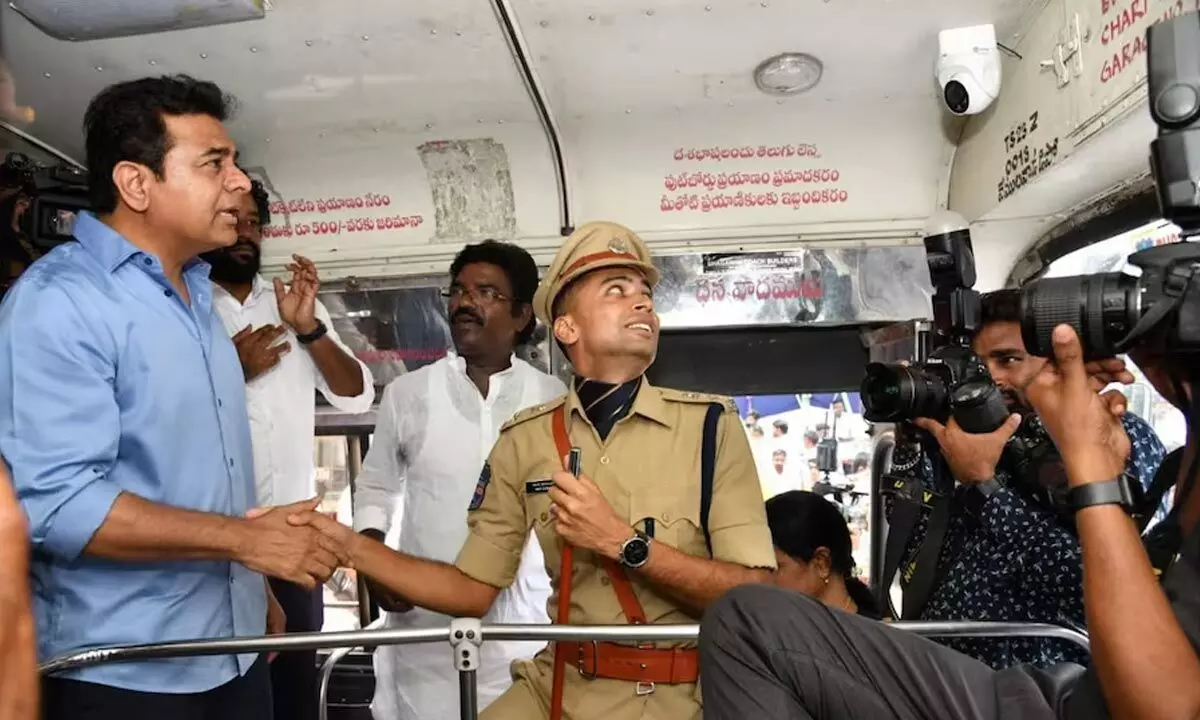‘Bus lo Bharosa’: Concerns on privacy

In wake of the TSRTC buses being installed with CCTV cameras, researchers have raised concerns related to privacy particularly in wake of use of facial recognition technology by the Telangana police which drew flak from international human rights bodies like Amnesty
Hyderabad: With more State run buses getting CCTV cameras installed, the researchers on privacy have questioned the haste and possibility of information falling into wrong hands. Referring to Telangana as ‘major surveillance’ State in the making with highest number of cameras installed, they demanded that the government first come up with a rule book on its utilisation, apart from surveillance law.
In wake of the TSRTC buses being installed with CCTV cameras, researchers have raised concerns related to privacy particularly in wake of use of facial recognition technology by the Telangana police which drew flak from international human rights bodies like Amnesty. There are 10 lakh CCTV cameras installed all over the State, with over 6 lakhs in the City alone by police and aims to touch the figure of 15 lakh. “When you say that each camera is equivalent to 100 cops you are essentially policing. The footage captured through camera can be used as evidence in court and can also be misused,” feels Srinivas Kodali, an independent researcher on privacy.
According to Srinivas there were instances at both national and State level where authorities have claimed that CCTV was not working at the time of incident. “My concern is will it be provided for the general public when sought through RTI. When the general public cannot have access to this, it will be a clear case of excessive policing without accountability. There are instances where it was claimed that footage was not available as the camera was not working. Where are the rule books and surveillance laws?” he asked.
On August 15, Minister KT Rama Rao launched ‘Bus lo Bharosa’ citing the reason ‘safety of women’ during his visit to Rajanna Sircilla district. This is aimed at putting an end to eve-teasing on TSRTC buses. Last year Project iRASTE (intelligent Solutions for Road Safety through Technology and Engineering) was launched by the Minister. The mechanism adopted by iRASTE alerts the drivers by deploying AI and Advanced Driver Assistance Systems.
Social activist S Q Masood who has been raising the issue for the past few years wondered how installing CCTV cameras in public buses would prevent issues like eve teasing. “It's crucial to address concerns about potential misuse, as highlighted by incidents like the Khadeer Khan case, where innocent people faced wrongful arrest due to CCTV footage. Police must establish stringent protocols to prevent the abuse of CCTV cameras against innocent individuals. Additionally, the maintenance of these cameras needs careful attention, given that data obtained through RTI reveals that nearly 50% of police-installed cameras are non-functional,” he argued.








